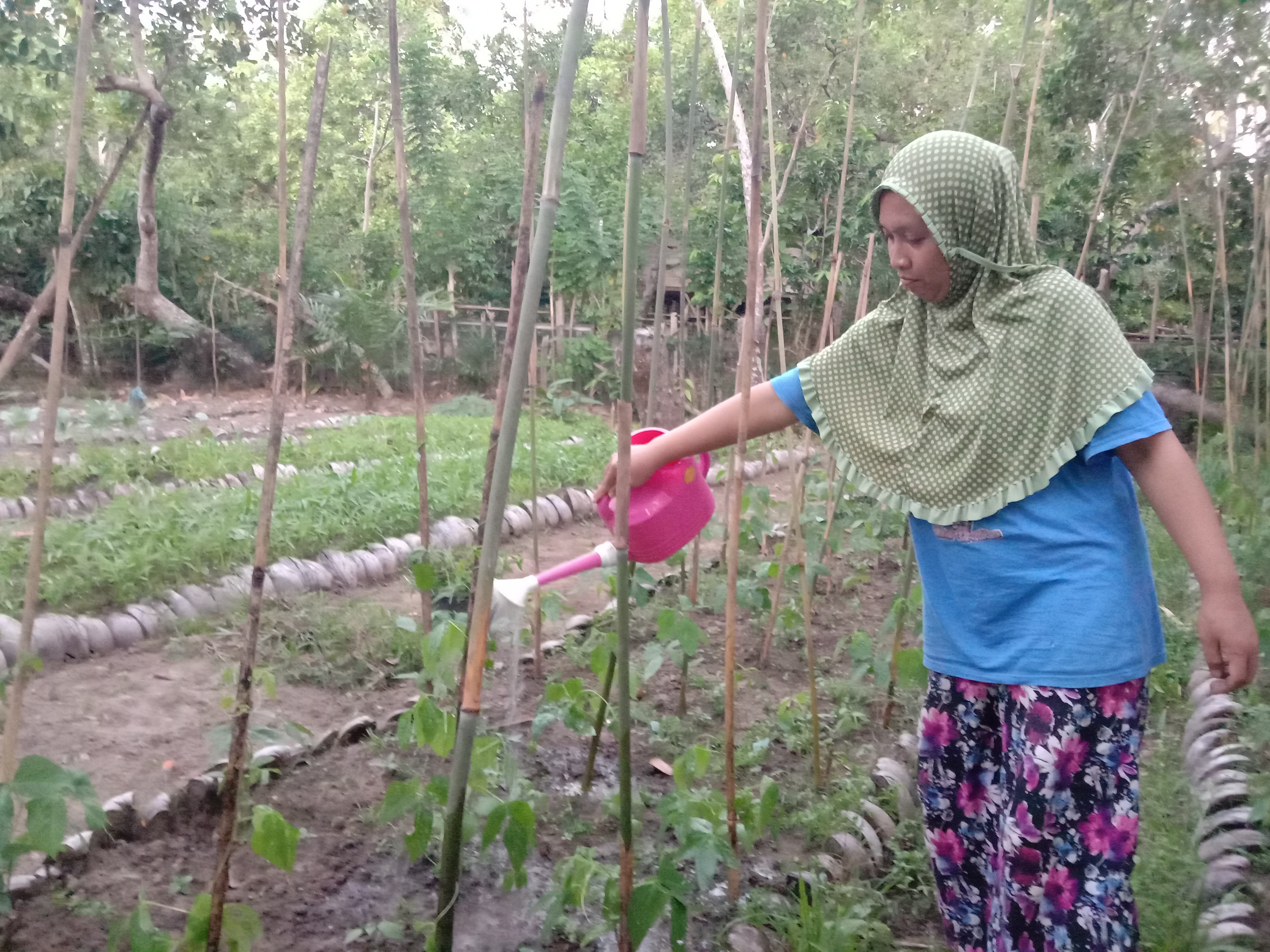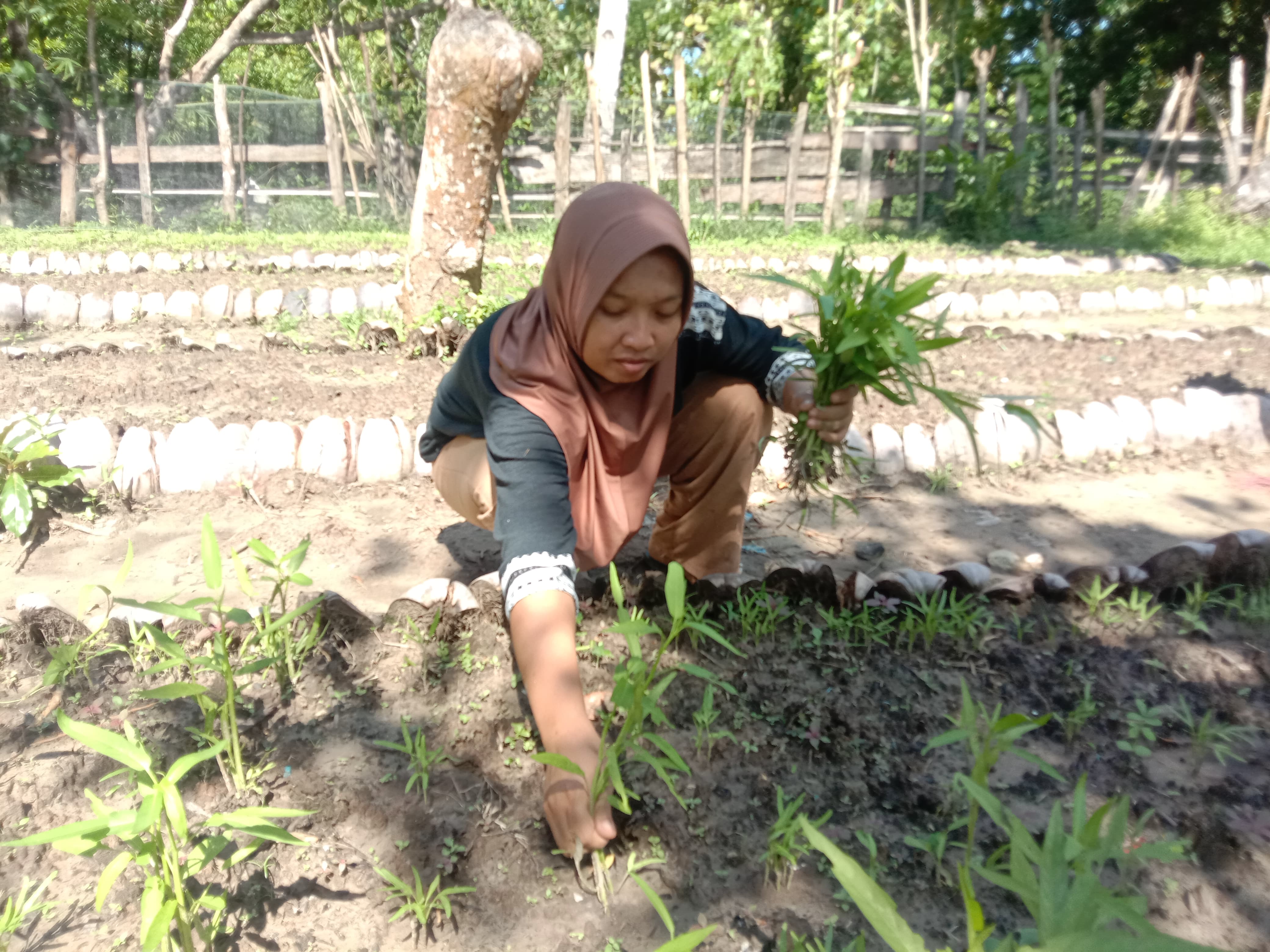Baluara Village is a village on the coast of Muna Island, Southeast Sulawesi, where the majority of the population work as traditional fishermen and farmers. The primary agricultural commodities produced in the village are bananas, corn, cashews, and cassava. Although most houses have large yards, they are underutilized and are generally used as cattle yards or left for wild cattle to forage. As a result, yard land that could be used to grow food crops, especially vegetables, is still neglected, so people often still depend on the market for their vegetable needs.
Recognizing the great potential of Baluara Village, the Integrated Agriculture program was subsequently proposed as a solution to enhance the community’s economic well-being while maintaining environmental sustainability. Blue Forests, in collaboration with the village government, designed the Integrated Agriculture Program in Baluara Village as part of the Field School (SL) scheme, where people learn directly in the field to optimize the use of their yards. The enthusiasm of the community in participating in this activity was very high, particularly in their efforts to transform the unproductive yard environment into a source of food and additional income. The participants consisted of 25 individuals, including farmers, traders, and a majority of homemakers. Meeting 2-3 times a month, they learn from land preparation, bed making, planting, maintenance, composting, pest and pest management, and harvesting.
The program also encourages the utilization of other resources from the surrounding environment. Leaves that fall around the settlement, sorted livestock manure, and household organic waste are collected and processed into additional compost. In the process, livestock manure that was previously considered less valuable or even disturbing is now utilized as a source of compost that can fertilize the soil. This compost is then used in the village yard, where it is converted into beds to grow a variety of vegetables. With this compost, the soil becomes more fertile, directly contributing to improved crop yields without relying on chemical fertilizers, which can be expensive.
Over time, some SL participants began to prepare their yards, make beds, and plant various vegetables, both for personal consumption and for sale at the local market. Other villagers with limited land also benefited by buying fresh vegetables directly from the participants, which helped drive the local economy.
 The bed-making process by SL participants – Monika/Blue Forests
The bed-making process by SL participants – Monika/Blue Forests
 Making compost fertilizer – Blue Forests
Making compost fertilizer – Blue Forests
Seeing the positive results of this SL activity, the Baluara Village Government took further steps by encouraging the reactivation of Dasa Wisma groups in the village. The village government provides financial support to each group, which can be utilized to cultivate residents’ yards more productively and buy seeds of various types of vegetable plants. This step not only helps improve food security at the household level but also strengthens cooperation between residents in utilizing yard land as a source of food and additional income for families.
Additionally, the long-term goal of this program is to establish a production house as a village souvenir center. This production house will serve as a platform for residents to sell a variety of agricultural products, processed food, and traditional village handicrafts, thereby attracting tourists and enhancing the village community’s income.
 Mrs. Maya watering the plants in her yard – Blue Forests
Mrs. Maya watering the plants in her yard – Blue Forests

Mrs. Maya picking vegetables – Blue Forests
One of the participants, Mrs. Maya Sari, has directly benefited from participating in this SL activity. At first, she only intended to learn how to grow vegetables in her yard as part of the SL activities. However, after some time undergoing the process, Ms. Maya began to realize the many benefits obtained from this activity. “After growing my own vegetables, I no longer need to buy daily vegetables that usually cost Rp.10,000 because now I can pick them up directly in my yard,” she said enthusiastically.
Besides helping to reduce daily expenses, growing your vegetables also provides significant health benefits. Ms. Maya chooses natural methods to care for the plants in her yard, using homemade compost from a mixture of dried leaves, livestock manure, and household food scraps with no added chemicals. This way, she feels confident that the vegetables she consumes are healthier and safer for her family. Additionally, this gardening activity serves as a means of maintaining physical health and filling time with positive activities around the house.
The vegetable harvest from her garden was relatively abundant, so Maya was able to sell some of the produce to neighbors and other villagers. Many buyers even come directly to her house to get fresh vegetables. This success has made Ms. Maya even more enthusiastic, and she hopes that the people of Baluara Village, especially other Field School participants, can follow in her footsteps. “Hopefully, the people of Baluara Village, especially the SL participants, can utilize their yards like I did,” she said hopefully.
